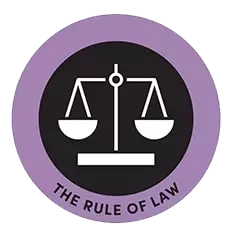The underlying principles of the Australian Constitution explain how things work in the operation of the Commonwealth Government. The six foundation principles are democracy, the rule of law, the separation of powers, federalism, nationhood and rights balanced by responsibilities.
The daily processes within the institutions of government should always be in the public interest. The principles interact with each other providing checks and balances. They protect things we value as a community such as a fair go, religious tolerance and the freedom of political communication. If we can better understand the principles, then we are better equipped to know, and to get involved with what is happening around us.
What powers does a Government Minister have and who keeps him or her within those powers? How are issues solved between State and Federal Governments? What are your rights and who defends them? What are your responsibilities as citizens of Australia? How do we develop as a nation? And what is a parliamentary representative democracy?
Explore in detail how the six principles guide the people and the institutions within our system of government.
Click on the icons to learn more about each of these principles









